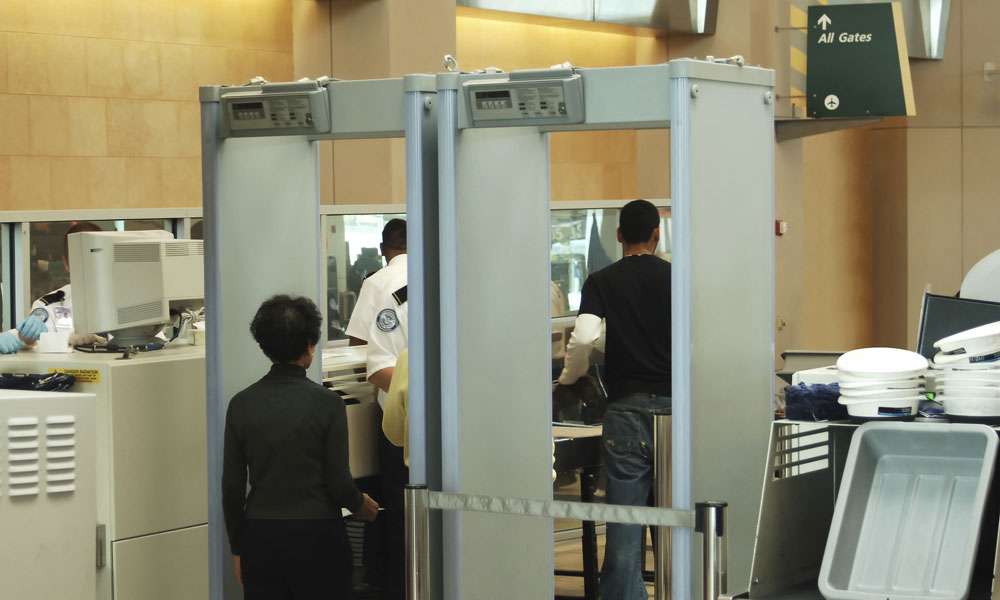
Flight Attendants vs. Knives: Anatomy of a Regulatory Win
After months of negative feedback from associations and airline-industry unions, the Transportation Security Administration announced it was abandoning a plan to loosen restrictions banning knives on planes. Here's how they won.
It was a move that drew a strong reaction right out of the gate, and with a long period of sustained opposition, the airline industry largely got what it wanted on Wednesday: a move against allowing knives to be brought aboard commercial flights.
Read on below to learn more about the steps that led to a coalition’s victory:
The decision: Back in March, the Transportation Security Administration announced an effort to allow a number of items with small blades aboard airline flights—items which had been banned from flights since the terrorist attacks on September 11, 2001, in which hijackers used box cutters to take over four commercial jets. Since the ban, some have criticized the TSA’s confiscation of items such as pocket knives. The announcement of the change drew strong negative reaction from many associations. The Air Line Pilots Association International (ALPA) didn’t take a stance but initially argued that it would help bring U.S. regulations in line with international standards.
The opposition builds: In the wake of the TSA’s decision to modify the ban on knives, a number of associations and unions in the airline industry—most notably the Association of Flight Attendants (AFA), along with the Association of Professional Flight Attendants , the International Association of Machinists, the International Brotherhood of Teamsters, and the Transport Workers Union—spoke out against the move. “After September 11, the policy changed, and it changed for a reason,” AFA international vice president Sara Nelson said on NBC’s Today Show in the wake of the March announcement. As time went on, opposition built outside of the association world, including among a number of airline executives and members of Congress. In the House, Reps. Edward Markey (D-MA) and Michael Grimm (R-NY) offered an amendment to a homeland security bill that would have cut funding to implement the change to the blade ban, Bloomberg reported.
The rollback: In April, the policy change on small knives was postponed, due in part due to the Boston Marathon bombings that month. This week, the TSA scrapped the change to the ban entirely, announcing the decision in a statement Wednesday. “After extensive engagement with the Aviation Security Administration, law enforcement officials, passenger advocates, and other important stakeholders, TSA will continue to enforce the current prohibited items list,” the agency said.
Thirty-eight minutes after the TSA administration announced this on March 5, we announced our vehement opposition and we haven’t stopped for one moment.
The reaction: After the decision to retain the ban on small, bladed items was announced, the AFA’s Nelson applauded the coalition that opposed the loosening of restrictions. “Thirty-eight minutes after the TSA administration announced this on March 5, we announced our vehement opposition and we haven’t stopped for one moment,” she told Forbes. “The coalition worked with congressional leaders, put together a legal team and [arranged] demonstrations at airports.” The Coalition of Flight Attendant Unions, a group that includes a number of associations and flight unions and represents 90,000 flight attendants, wrote on its advocacy site, No Knives on Planes, that TSA’s decision to keep the ban intact was welcome and had come after input from the coalition’s members. “Terrorists armed only with knives killed thousands of Americans on 9/11/2001,” the coalition said in the statement. “As the women and men on the front lines in the air, we vowed to do everything in our power to protect passengers and flight crews from harm and prevent that type of atrocity from happening ever again.”
While TSA’s reversal had strong support among airline groups overall, ALPA was softer in its response to the decision, arguing that the industry should eventually move to risk-based security, rather than blanket bans of objects.
“While there is still a role for object screening,” the association noted in a statement, “it is imperative that the security in this country provides screening that also includes detection of harmful intent and makes the most efficient and effective use of our security resources resulting in safer, more secure, flights.”
When fighting changes to federal regulations affecting your industry, what techniques have you used to turn the tide in your favor? Let us know in the comments.
(iStockphoto/Thinkstock)






Comments